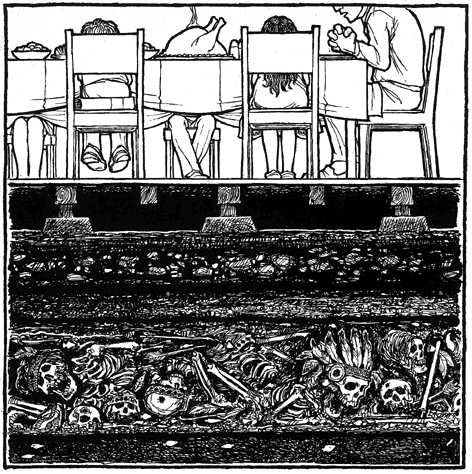The first Thanksgiving
In the fall of 1621, 90 Wampanoag Indians and 52 English colonists gathered for a three-day harvest feast. How did Americans get from that celebration to the Thanksgiving 'traditions' we observe today?
By Elizabeth Armstrong
But the 19th century had its own Martha Stewart, and it didn't take her long to turn New England fasting into national feasting. Sarah Josepha Hale, editor of the popular Godey's Lady's Book, stumbled upon Winslow's passage and refused to let the historic day fade from the minds--or tables--of Americans. This established trendsetter filled her magazine with recipes and editorials about Thanksgiving.
It was also about this time--in 1854, to be exact--that Bradford's history book of Plymouth Plantation resurfaced. The book increased interest in the Pilgrims, and Mrs. Hale and others latched onto the fact he mentioned that the colonists had killed wild turkeys during the autumn.
In her magazine Hale wrote appealing articles about roasted turkeys, savory stuffing, and pumpkin pies--all the foods that today's holiday meals are likely to contain.
In the process, she created holiday "traditions" that share few similarities with the original feast in 1621.
In 1858, Hale petitioned the president of the United States to declare Thanksgiving a national holiday. She wrote: "Let this day, from this time forth, as long as our Banner of Stars floats on the breeze, be the grand Thanksgiving holiday of our nation, when the noise and tumult of worldliness may be exchanged for the length of the laugh of happy children, the glad greetings of family reunion, and the humble gratitude of the Christian heart."
Not coincidentally, the Civil War and the Indian Wars were looming. We can almost imagine what Hale was thinking. "We white Christians have to stick together. We can't let the Negroes and Indians tear this country apart. Let's put aside our differences and unite as one nation under God."
For more on the subject, see Why Thanksgiving Pageants Are Wrong and Peanuts' Thanksgiving Propaganda.


No comments:
Post a Comment